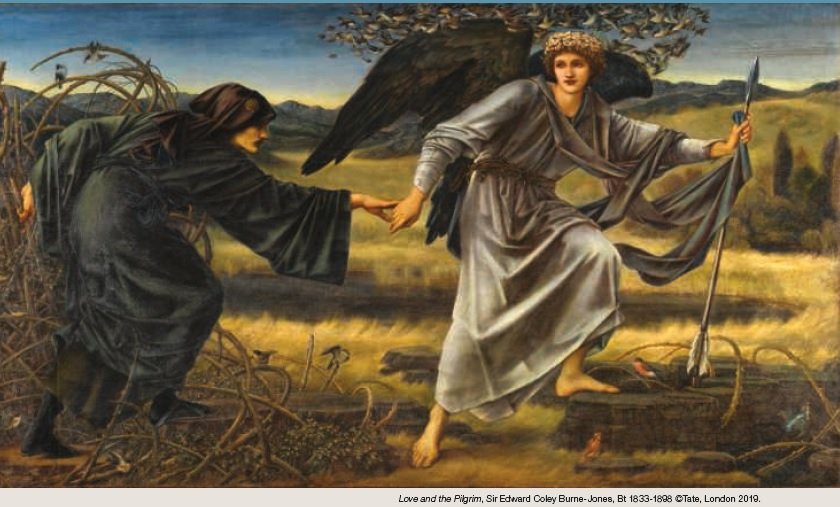Brexit: Here's More to Love
by Christabel McCooey
I have a confession to make. I have been avoiding news about Brexit like the plague. Ever since the first vote on 23 June 2016, wherein 51.9% of British voters opted to leave the European Union, I have had an impulsive urge to steer conversations away from the subject.
It is not that I am unaware of the positions; I know the flavour of the skirmishes occurring in homes and pubs and in our dishevelled House of Commons. I saw the placards of the Peoples’ Vote March, attended by an estimated one million people on 23 March 2019.
Yet despite the very real effect of Brexit, in terms of division at best, and racism, vitriol and hatred at worst, there remains something very abstract and intangible about it. Brexit reminds me of an air dancer balloon that you might see loping about a car dealership: huge billowing arms and legs that leap about in all directions; closer inspection confirms it is animated simply by hot air.
What is the spirit animating Brexit?
We are advised in the Gospels: “Do not believe every spirit, but put the spirits to the test to see whether they are from God 1 .” Certainly, the fruits of the spirit—love, joy, peace, patience, kindness, goodness, faithfulness, gentleness, and selfcontrol—do not readily spring to mind when reflecting on the sentiments exhibited in Parliament this past spring, particularly after the latest ‘deal’ to leave the EU was rejected, leading to a subsequent scramble for Britain to reach a new solution in time for the fourth deadline from Brussels of 31 October 2019, ironically, Halloween.
It seems that Brexit has accentuated the dominant personality of our current system of politics: self-seeking, dualistic and self-righteous, rarely with humour or apology. This unsavoury picture perhaps explains a rare occurrence that took place in early April: a near-defeated Theresa May approached Labour-leader Jeremy Corbyn to try and break the stale-mate, a movement he has welcomed. Notable, too, is the equally uncompromising and warlike framing of political discussion by the media: ‘What will you be demanding of [Theresa May]? 2 ’
Tempting though it is to blame those with an opposite view, there is no one ‘side’ to blame for the chaos following Brexit.
Brexit is one crisis of many taking place in a moment of human history. By attributing a vital importance to its outcome, whatever that may be, it seems we have been distracted from the daily task of loving our neighbour as ourselves, Brexit-supporting or otherwise. Meanwhile our ever-present social ills remain unaddressed: homelessness, poverty, excesses of corporate capitalism and militarism, and a lack of rehabilitation of the vulnerable, including addicts and criminals, to name a few.
In The Powers That Be: Theology for a New Millennium 3 , Walter Wink explores how one resists evil without succumbing to its methods, advocating a ‘Third Way’, which is neither submission nor violent assault: “evil can be opposed without being mirrored, the oppressor resisted without being emulated, and the enemy neutralized without being destroyed.” This is perhaps what Jesus meant when he bizarrely said, ‘Do not resist an evil person 4 ’; if we respond with hatred to our perceived enemies, however seemingly justified, we invariably dehumanise them and add to a world already crippled by division.
What would Brexit look like if all concerned embodied Jesus’ command to love our enemy? Is politics capable of this? Is a nation capable of this? If yes, wars would surely end. But we cannot wait to change a nation, we can only begin to change ourselves.
This revolutionary movement towards encountering and loving all people, regardless (and indeed in spite of!) their politics, is a grace that comes only when we surrender to God our will and our ego-driven desire to find instant solutions. As Richard Rohr insightfully captures in his book on the 12 Step Programme: “When religion does not move people to the mystical or non-dual level of consciousness it is more a part of the problem than any solution whatsoever. It solidifies angers, creates enemies, and is almost always exclusionary of the most recent definition of “sinner.” At this level, it is largely incapable of its supreme task of healing, reconciling, forgiving and peacemaking 5 .”
By trusting God in the turmoil of Brexit and trusting God’s promise that all things are being made new, we are freed to release the weight of the world to God. This is necessary, as Paul reminds us that any solution, however wellstrategised, will be shrill and jarring if it is not grounded in love, which endures whatever the time or crisis.
“These are the only genuine ideas; the ideas of the shipwrecked. All the rest is rhetoric, posturing, farce 6.”
Christabel McCooey is a barrister specialising in criminal, family and human rights law living in London, UK.
Endnotes
1 John 4:1
2 https://www.bbc.co.uk/news/av/ukpolitics-47794604/corbyn-very-happyto-meet-may-for-cross-party-brexit-talks at 0.30
3 New York Double Day, 1998.4 Matthew 5:39
5 Breathing Under Water: Spirituality and the Twelve Steps, Franciscan Media 2011
This article appeared in the Summer 2019 issue of Living Peace.

